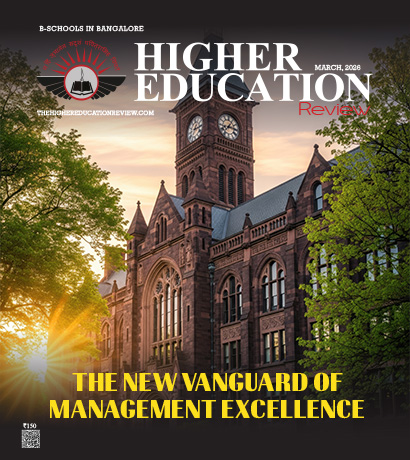Unlocking Opportunities: Medical Careers for International Students in the US
 In the ever-evolving landscape of healthcare, international students pursuing medical careers in the United States find a multitude of promising opportunities. Research and treating patients, America has it all for those starting in medicine. Think about famous medical schools, research labs, and hospitals. These places offer students from anywhere chances to be part of exciting new research, work with top pros, and make healthcare better. There are also things like Optional Practical Training (OPT) and visa sponsorships for fresh grads. They can use these to move from student to pro, to get real-world experience. Let’s explore how they can use these steps and tools for a promising and satisfying healthcare career in the United States.
In the ever-evolving landscape of healthcare, international students pursuing medical careers in the United States find a multitude of promising opportunities. Research and treating patients, America has it all for those starting in medicine. Think about famous medical schools, research labs, and hospitals. These places offer students from anywhere chances to be part of exciting new research, work with top pros, and make healthcare better. There are also things like Optional Practical Training (OPT) and visa sponsorships for fresh grads. They can use these to move from student to pro, to get real-world experience. Let’s explore how they can use these steps and tools for a promising and satisfying healthcare career in the United States.
“Study aboard for a medical degree or other degrees are becoming a preferable option for students from India. More so in a globalized economy. It is because of the world-class learning facilities at certain International universities that universities in Malaysia have become a viable option for students from India to study medicine and other disciplines. Ranked among the top 200 superior institutions with high standards of education, pursuing a Medical Degree and other degrees in Malaysia is one of the best choices.” says Dr. Fadhlullah Suhaimi Abdul Malek, Vice Chancellor & CEO, and Perdana University
Physician Assistant (PA): Bridging the Gap in Patient Care
If you're an international student in the US, consider becoming a Physician Assistant (PA). They're big in healthcare. PAs work side by side with doctors, surgeons, and other pros. They do physical exams, diagnose illnesses and tests, and even help with surgeries. They're the vital link between patients and doctors, lending a hand for topnotch, effective healthcare.
US Physician Assistant (PA) programs provide detailed training. They include both classroom learning and practical experience. This prepares students from abroad to succeed in different healthcare environments. For instance, an Indian student finished a US PA course and obtained a job in a prestigious hospital. There, they handled various patient situations effectively, demonstrating the varied skills acquired from their course.
Physician Assistants' need in the US is growing. Our population is getting older, and health care is changing. Case in point: From China, a newly graduated PA lands a job in a busy city clinic. In no time, they're earning great pay. This shows that health providers with skills are in demand as they collaborate with doctors and other healthcare experts.
Together, they care for patients. Here’s another example: A student from Brazil comes here to study health. They join a healthcare team and bring in new ideas from their culture. This helps patients and doctors connect better.
Clinical Research Coordinator (CRC): Facilitating Medical Advancements
Are you an international student drawn to research? Want to fuel medical improvements, for example, by becoming a Clinical Research Coordinator (CRC) in the US? It's rewarding and mind-stretching. CRCs are vital in creating, rolling out, and tracking clinical trials. They make sure everything follows the proper ethical and regulatory rules. In this career, you can be part of scientific leaps forward and groundbreaking medical discoveries.
A CRC career requires learning and sticking to ethics in clinical research. Training is given to international students about ethical behavior and the need to protect the rights and health of research subjects. Let’s take an example. A student from Nigeria studying clinical research played a vital role in a new, remarkable treatment method. This shows the need for worldwide teamwork for developments in science.
CRCs team up with drug companies, research bodies, and medical experts. This gives them a great chance to network. A student from South Korea on an international level, working as a CRC, contacted high-level researchers and contributed to experiments at multiple centers, boosting their contacts and future job prospects.
Clinical Research Coordinators (CRCs) help create new treatments and therapies. They're crucial in turning research into real-world uses. A CRC from Mexico was a significant player in a clinical trial. This trial resulted in an innovative medicine's approval. It showcases how their work affects patient care directly.
Health Informatics Specialist: Navigating the Digital Frontier of Healthcare
Healthcare is leaning more toward tech these days. Because of this, global students might think about a job as a Health Informatics Specialist. These experts use their smarts in tech and healthcare. They make the most out of electronic health files (or EHRs), better complete data analytics, and enhance healthcare delivery. Health Informatics courses teach international students how to effectively use technology in healthcare systems to boost patient wellness. A student from the Philippines focused on health informatics and introduced a clever EHR system in a hospital. The workflow got better, and patient information became more precise.
Those specializing in Health Informatics gain skills in handling and interpreting healthcare data. This aids in decisions based on evidence and initiatives to enhance quality. An expert from Egypt was critical in examining a population's health data. They found patterns and made specific changes to improve public health.
Health Informatics Professionals strive to boost the effectiveness of healthcare services. They ensure that information systems promote better patient care and health outcomes. A student from Malaysia focused on Health Informatics. They used telemedicine in a rural health setup, broadening the availability of medical services and enhancing patient health.
There's a wide range of hopeful prospects for global students keen on a medical career in the US. They may become Physician Assistants, Clinical Research Coordinators, or Health Informatics Professionals. Each path promises unique chances for self-development and career enhancement. With a focus on thorough training, worldwide cooperation, professional ethics, and technology use, international students can significantly influence the ever-changing US healthcare scene.
International students aiming for a medical career in the US are up for exciting chances that would boost their professional growth. Top-notch education, varied clinical experiences, and research openings are the perks awaiting them. They're well prepared for the medical field's competitive nature. Johns Hopkins University, Cleveland Clinic, and Mayo Clinic provide excellent examples. They offer quality education, varied clinical environments, and research possibilities. By choosing the US, international students are investing in their healthcare journey. They're adding richness to the US healthcare system and gaining experiences that would influence global medicine in the future.

